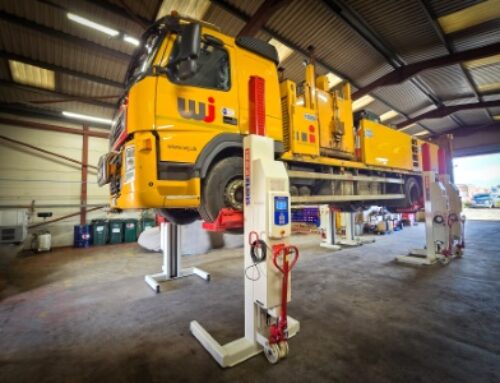Tuffa’s tips for the best diesel price
 Fuel storage specialist Tuffa Tanks has issued advice to fleet operators on a range of factors to consider when attempting secure the best diesel price.
Fuel storage specialist Tuffa Tanks has issued advice to fleet operators on a range of factors to consider when attempting secure the best diesel price.
The company is an established UK manufacturer of bulk liquid storage and dispensing tanks, offering bunded diesel fuel stations in plastic and steel, in a variety of capacities from 1,350 to 86,000 litres.
“Fuel accounts for around one third of a fleet’s typical running cost – no surprise, then, that transport operators plan and scheme to reduce fuel costs and improve fuel efficiency,” said Tuffa.
“With large logistics companies operating hundreds or even thousands of vehicles throughout the UK, keeping fuel costs to a minimum is absolutely vital to maximising profit margins.
“Even the difference of a couple of pence per litre makes a huge difference when the savings are multiplied by every vehicle. To put this into context, a HGV doing around 10 MPG can clock up 100,000 miles annually. In this scenario, a saving of 2 pence per litre will ultimately save £909 on fuelling each HGV annually.”
Simply by purchasing fuel at the optimum time, fleets can significantly reduce the amount spent per litre, points out Tuffa, adding that average weekly UK pump prices show just how much the cost of diesel has fluctuated over the past 10 years, with a range of 46 pence per litre.
“Oil price fluctuations occur for many reasons including supply and demand, exchange rates, natural disasters, and political unrest,” the company continued.
“Already in 2020 we’ve seen an oil price war between Saudi Arabia and Russia which resulted in oil prices plunging by almost a third. At the same time the spread of Covid-19 decreased demand to the point that even the lowest possible oil production level still resulted in greater supply than demand.
“Of course, these factors such as these are virtually impossible to predict, let alone influence. However, calculating the mean average pump price for diesel over the past 10 and even 20 years does reveal a common trend.
“Data taken from gov.uk shows that months such as February and August are consistently cheaper on average than months such as April, September and October. Transport operators with a big enough diesel storage tank can use this data to purchase fuel on the months with the highest probability of being the cheapest.”
Tuffa says its top recommendation for getting the best price for diesel is to purchase the highest capacity tank possible given the fleet’s budget, usage, and the size of the site.
“A larger capacity tank can help you to be more selective in when you purchase fuel, and when prices do drop you can order a larger quantity of fuel at the cheaper rate,” the company points out.
“Another benefit of purchasing a larger tank than strictly necessary is to benefit from the incremental savings that fuel suppliers offer on the price you pay per litre.
“Typically, fuel suppliers will offer you discounts for larger fuel purchases in increments such as 1,000, 2,500, 5,000, 7,500, 10,000, 15,000, 18,500, 24,000, 30,000 and 36,000 litres.
“Perhaps the most economical of our diesel tanks is the new 30,000 litre interlinked diesel fuel station. This tank benefits from being the highest capacity plastic bunded diesel tank on the market, guaranteeing you a large, durable tank with premium ancillary equipment but at a cheaper price than the steel alternative.
“You may be surprised how quickly the greater initial cost from buying a higher capacity tank is outweighed by the additional savings.”
Getting the best price for diesel doesn’t end after fuel has been purchased, adds Tuffa – improving fuel efficiency, to get the most value out of every litre, is also important.
“That’s why our plastic and diesel fuel stations are available with a Piusi fuel management system, only enabling authorised users to dispense fuel from the tank via a pin code or magnetic key system,” said the firm.
“This means that every litre can be accounted for reducing the temptation and risk of fuel theft. The system also comes with software enabling you to maintain, control and monitor fuel consumption and stock levels.
“With this data at your disposal you can start to calculate fuel consumption for specific drivers and journeys. These insights will prove indispensable by allowing you to implement schemes aimed at reducing fuel consumption and be able to track the results.
“Some of the top schemes we’ve found to improve fuel efficiency range from fuel saving tips and training courses, to bonus schemes based on rewarding fuel efficiency.
“These fuel savings plans can come straight from the top, or by appointing a ‘Fuel Champion’ tasked to create fuel efficiency initiatives and a company culture where fuel saving is the norm.”
Quote requests and a full product brochure can be obtained via Tuffa’s Sales Support team. For more diesel storage advice including storage regulations, how to prolong diesel’s lifespan and the types of diesel tank available, readers can find Tuffa’s Expert Guide to Diesel Storage at:











